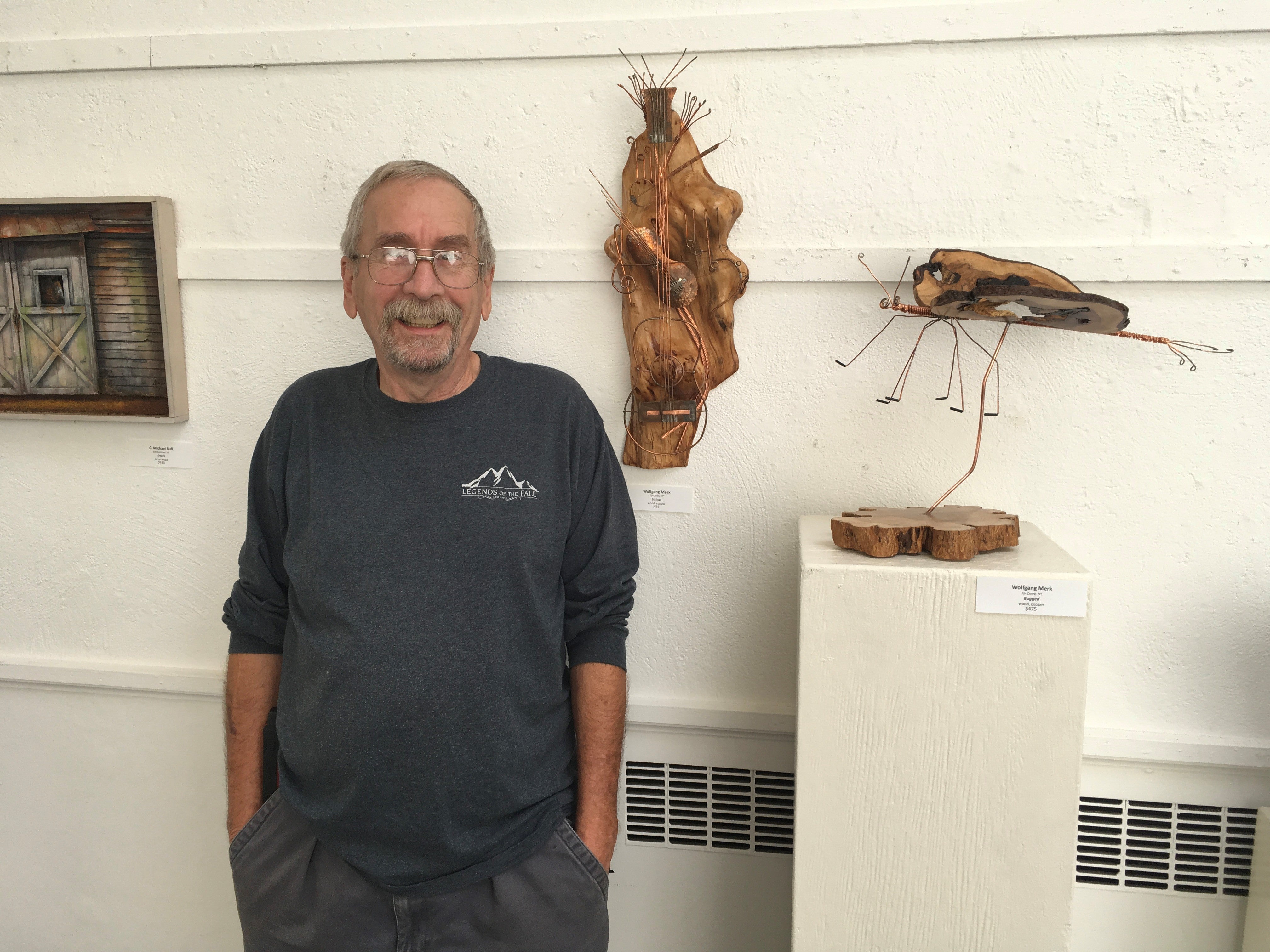"How many times can you say 'thank you?' I've been thinking about this for years. I wonder — is 'thank you' enough?"
Nine years ago, Wolfgang Merk received a liver transplant. Without it, he almost certainly would have died. He doesn't know much about his donor — just she was a few years younger than himself. Her family decided to otherwise remain anonymous. He respects that. But he's often imagined what a conversation with them might be like. How can someone express gratitude for a decade of life?
A Bad Year
Merk's journey began with a downward spiral. In 2010 he was diagnosed with Hepatitis C and liver cancer. His doctors tried a variety of treatments, but they were ineffective and his liver continued to fail.

Strong Memorial Hospital's transplant program in Rochester brought hope. "It was either a transplant or wait to die," remembers Merk. "So I was definitely excited." After treating his cancer and running countless tests to ensure he was healthy enough to receive a transplant, he was put onto the waiting list for a new liver.
"There are hundreds of thousands of people who are waiting for organs every year," explains Dr. Christopher Kjolhede, a senior attending physician in the Bassett Healthcare Network and an organ donation advocate. "There are rare cell and protein types that make matching a donor to a recipient difficult. But the main factor is a simple lack of donors. People are dying literally daily from kidney failure, heart failure and liver failure because they don't have a donor."
Merk's wait was grueling.
"I was in and out of the hospital for close to a year," says Merk. "Mostly in." Without a functional liver, toxins regularly built up in his body. "I'd become disoriented. I didn't recognize people. Sometimes I didn't know where I was — or even who I was. My wife picked up on that stuff right away and would bring me back to the hospital. The pattern was two weeks home, three weeks back in the hospital."
Being bedridden weakened his legs and decreased his mobility. The need to stay within a four hour drive of the hospital also impacted his life. "I missed my mom's funeral," says Merk. "The six or seven hour drive to Long Island was not doable. I had to stay home."
His hope was in danger of fading entirely.
"There were times in the hospital when I was so ill that I would tell my wife, 'Look, I don't want to do this anymore.' She challenged me to keep going. If it wasn't for her, I would have given up a while ago."
Serendipity
Things changed for Merk at what seemed like the eleventh hour.
"Finally my doctors decided there was nothing else they could do for me. There was no liver available and mine was failing completely. It was time to go home to die. But there was a snowstorm that night. My doctor agreed I could stay until the morning so the weather would clear. Then, at about 10:00pm, the doctor came in and said they had a liver for me. I called my wife and she rushed back from where she was staying. The next thing I knew I was getting wheeled into the operating room."
"Had I been on the road on the way home," says Merk, "I would have missed out on that liver. It would have gone to someone else. That was quite a lucky turn."
New Life
Merk's recovery took time and determination. His body needed weeks in the hospital to become acclimated to his new liver. He rebuilt his leg strength through physical therapy. His doctors treated and cured his Hepatitis C. With a new liver, these were all steps to becoming healthy and whole once again.
While reassembling his life, he found the experienced had changed him. "I don't really mind snow that much anymore," he jokes, thinking of that fateful snowstorm. "A lot of little annoyances don't bother me as much anymore. Every day is a good new day."
He also feels immense gratitude.
"I am so thankful for my wife. Had it not been for her love and care, I'm sure I would not be here right now. My doctors, nurses, and staff at the transplant clinic were incredible people. And definitely for the donor."
One organ donor could save up to eight lives, restore sight to two people, and heal dozens of others. Visit https://www.donatelife.net/ to learn more and register to be an organ donor today.
